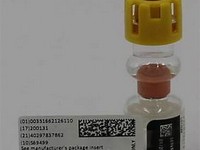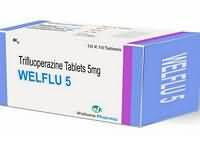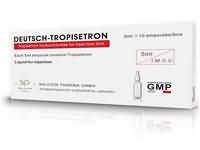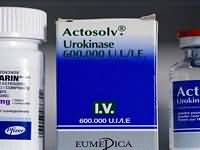hydrocortisone sodium succinate

hydrocortisone sodium succinate
CLINICAL USE
Corticosteroid:Anti-inflammatory agent in respiratory, GI, endocrine disorders, and allergic statesShock
DOSE IN NORMAL RENAL FUNCTION
Oral: 20–30 mg in divided doses for replacementIV/IM: 100–500 mg, 3–4 times in 24 hours, or as required
PHARMACOKINETICS
Molecular weight :484.5 (486.4 as sodium phosphate) %Protein binding :>90 %Excreted unchanged in urine : Minimal Volume of distribution (L/kg) :0.4–0.7half-life – normal/ESRD (hrs) :Approx 100 minutes/ Unchanged DOSE IN RENAL IMPAIRMENT
GFR (mL/MIN)
20 to 50 : Dose as in normal renal function 10 to 20 : Dose as in normal renal function <10 : Dose as in normal renal function DOSE IN PATIENTS UNDERGOING RENAL REPLACEMENT THERAPIES
CAPD :Unlikely to be dialysed. Dose as in normal renal function HD :Unlikely to be dialysed. Dose as in normal renal functionHDF/high flux :Unlikely to be dialysed. Dose as in normal renal functionCAV/VVHD :Unlikely to be dialysed. Dose as in normal renal function IMPORTANT DRUG INTERACTIONS
Potentially hazardous interactions with other drugsAntibacterials: metabolism accelerated by rifampicin; metabolism possibly inhibited by erythromycinAnticoagulants: efficacy of coumarins may be alteredAnti-epileptics: metabolism accelerated by carbamazepine, barbiturates, phenytoin and primidone Antifungals: increased risk of hypokalaemia with amphotericin – avoid concomitant use; metabolism possibly inhibited by itraconazole and ketoconazoleAntivirals: concentration possibly increased by ritonavirCiclosporin: rare reports of convulsions in patients on ciclosporin and high-dose corticosteroidsCytotoxics: increased risk of haematological toxicity with methotrexate Diuretics: enhanced hypokalaemic effects of acetazolamide, loop diuretics and thiazide diureticsVaccines: high dose corticosteroids can impair immune response to vaccines – avoid concomitant use with live vaccines ADMINISTRATION
Reconstition
IV injection, IM injection: add 2 mL of sterile water for injection IV infusion
: add not more than 2 mL water for injection, then add to 100–1000 mL (not less than 100 mL) glucose 5% or sodium chloride 0.9% Route
IV injection, IV infusion
, IM Rate of Administration
IV bolus: 2–3 minutes Comments
Minimum volume 100 mg in 50 mL. (UK Critical Care Group, Minimum Infusion Volumes for fluid restricted critically ill patients, 3rd Edition, 2006) OTHER INFORMATION
Non-plasma protein bound hydrocortisone is removed by HD :One study has shown that plasma clearance rates of hydrocortisone during haemodialysis were 30–63% higher than after dialysis. No recommendations exist to indicate dosing should be altered to take account of this
See how to identify renal failure stages according to GFR calculation
See how to diagnose irreversible renal disease
Home









